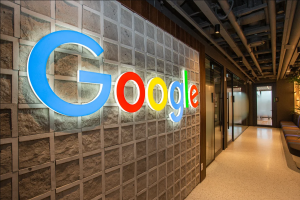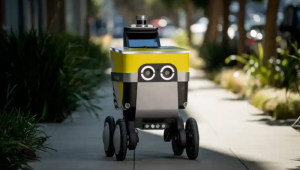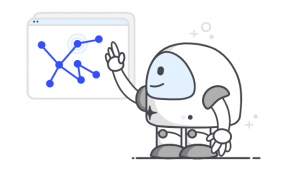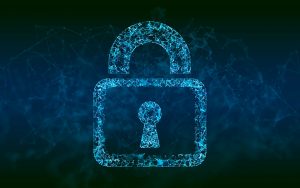How Internet of Things & Looming Transition in Compute Landscape Affect Storage
![]() The Internet of Things is moving the Internet from people to things. The technology world is experiencing and influencing massive market shifts in some key industries, such as retail and financial services. What was once just data siloed in spreadsheets (basically as good as “lost”), is now becoming actionable data and data requests in real-time.
The Internet of Things is moving the Internet from people to things. The technology world is experiencing and influencing massive market shifts in some key industries, such as retail and financial services. What was once just data siloed in spreadsheets (basically as good as “lost”), is now becoming actionable data and data requests in real-time.
More importantly, sensors and software are creating petabytes of new information every day that need to be stored and analyzed. The Internet of Things is putting the storage of both Big Data and personal data in the forefront of this conversation. As the next source of value for CIOs, the Internet of Things is going to make a big splash.
The Internet of Things Contributors: Little Things & Big Things
There are two distinct areas producing data in the Internet of Things: little things and big things. (Insert LOL) But seriously, hear me out. Together, they are collecting and storing massive amounts of personalized data about you that will soon be ‘readable’ in almost every way imaginable.
Little Things
Today, some estimates suggest that 8 to 10 billion devices are connected. The connected consumer is creating a mobile web of little things that feeds off of analyzing real-time data to make purchasing decisions. Think about your home for a second.
At the time of writing this article, my home houses two personal laptops (Macbook Air, Macbook Pro), three gaming consoles (Xbox 360, Nintendo Wii, Nintendo NES), two portable electronics (iPod Touch 4th generation, LeapPad2), two smartphones (iPhone 5, iPhone 4S), one television (LG Smart TV), and a partridge in a pear tree.
So in my apartment alone, that’s nine total connected devices that are producing personalized data about my consumer habits. But that is just the tip of the iceberg. There are five to ten devices in your home right now that could soon be collecting and storing data about you too.
Scott Lowe recently contributed a piece to Wikibon entitled The Internet of Things, Big Data and Fast Analytics Provide the Ultimate “What If” Outcomes for CIOs. I want to share an excerpt of that article:
“Big Data” doesn’t always mean billions of terabytes of financial data. Sometimes the smallest devices generating modest amounts of data participate in the big data trends. For example, that Nest thermostat sits quietly on my wall automatically managing the temperature in my home year-round. Behind the scenes, Nest is also automatically updating itself and sending information about my heating and cooling habits to Nest HQ. I don’t know how much data is generated, but with Nest’s place as a very popular device with a whole lot of deployments, the data storage requirements must be significant.
Big Things
![]() And then there are the big things contributing to the shift from the Consumer Internet to the Internet of Things. Take for example the new Boeing 787 airplane. On a single flight, that “device” (did he just call a Boeing 787 a device?) can generate a whopping half a terabyte of data. This is per flight information. If there are 30,000 flights every day in the U.S., and for this example they were all Boeing 787’s, that’d be 15,000 terabytes of data alone…per day. The storage requirements for that amount of inbound data are tremendous.
And then there are the big things contributing to the shift from the Consumer Internet to the Internet of Things. Take for example the new Boeing 787 airplane. On a single flight, that “device” (did he just call a Boeing 787 a device?) can generate a whopping half a terabyte of data. This is per flight information. If there are 30,000 flights every day in the U.S., and for this example they were all Boeing 787’s, that’d be 15,000 terabytes of data alone…per day. The storage requirements for that amount of inbound data are tremendous.
The Internet of Things is the Internet of Big Data
The billions of sensors and connected ‘devices’ that make up the Internet of Things are a gold mine of business insights and data that yield companies new competitive advantages. Big Data is already being used to study traffic patterns, pricing data, stock markets, and last but not least (or smallest) healthcare — but these efforts are in their infancy. The value gained from (a) having access to (b) being able to understand (normal person analyzing) and (c) act on the data is something that we’ve never seen before.
Take healthcare as a specific example. Imagine this: Collecting all of the data in healthcare and feeding that back in some sort of way to the general public. From a recent interview Wikibon Founder and CTO David Floyer added this:
“The value from that doesn’t come from making doctors better, but it comes from people knowing more about it and not making calls to the doctor nearly as much. So there you could actually make a huge difference, in the trillions of dollars in the cost of healthcare.”
See his commentary in full below.
Questions, Questions, Questions
The Internet of Things is putting storage front-and-center, at the head seat of the popular kids’ table. Storage plays a vital role in what the Internet of Things is going to be able to do for businesses. Cost savings that have existed for decades are now going to be analyzed and will not only change business practices, but improve efficiency for companies. And on the consumer side of that coin, you’ll be in control of more of your data while saving money in the process too.
But with every technological advancement that transcends multiple generations and business markets…there are more questions than answers in the beginning. Who will own “my” data? Who can access “my” data? How is Big Data being protected? What does a software-defined world of analytics mean? How is “my” data stored, and where? The list of questions is never-ending, and these are very, very important questions too.
We’re at the tipping point of an amazing time in the compute landscape. Data is becoming more than just numbers on an Excel sheet that mean next-to-nothing. Big Data has an opportunity to improve all aspects of our every day lives. Data storage is going to become one of the most regulated and important conversations of the next 20 years…and it has the Internet of Things to thank.
A message from John Furrier, co-founder of SiliconANGLE:
Your vote of support is important to us and it helps us keep the content FREE.
One click below supports our mission to provide free, deep, and relevant content.
Join our community on YouTube
Join the community that includes more than 15,000 #CubeAlumni experts, including Amazon.com CEO Andy Jassy, Dell Technologies founder and CEO Michael Dell, Intel CEO Pat Gelsinger, and many more luminaries and experts.
THANK YOU













